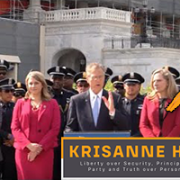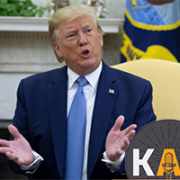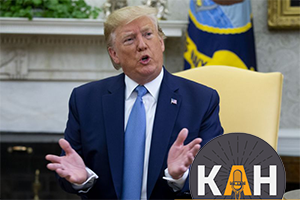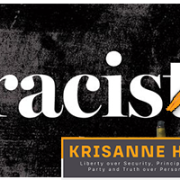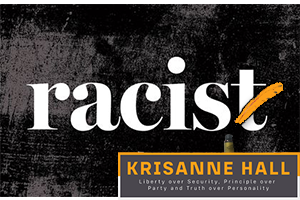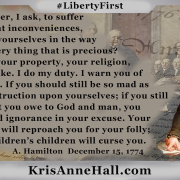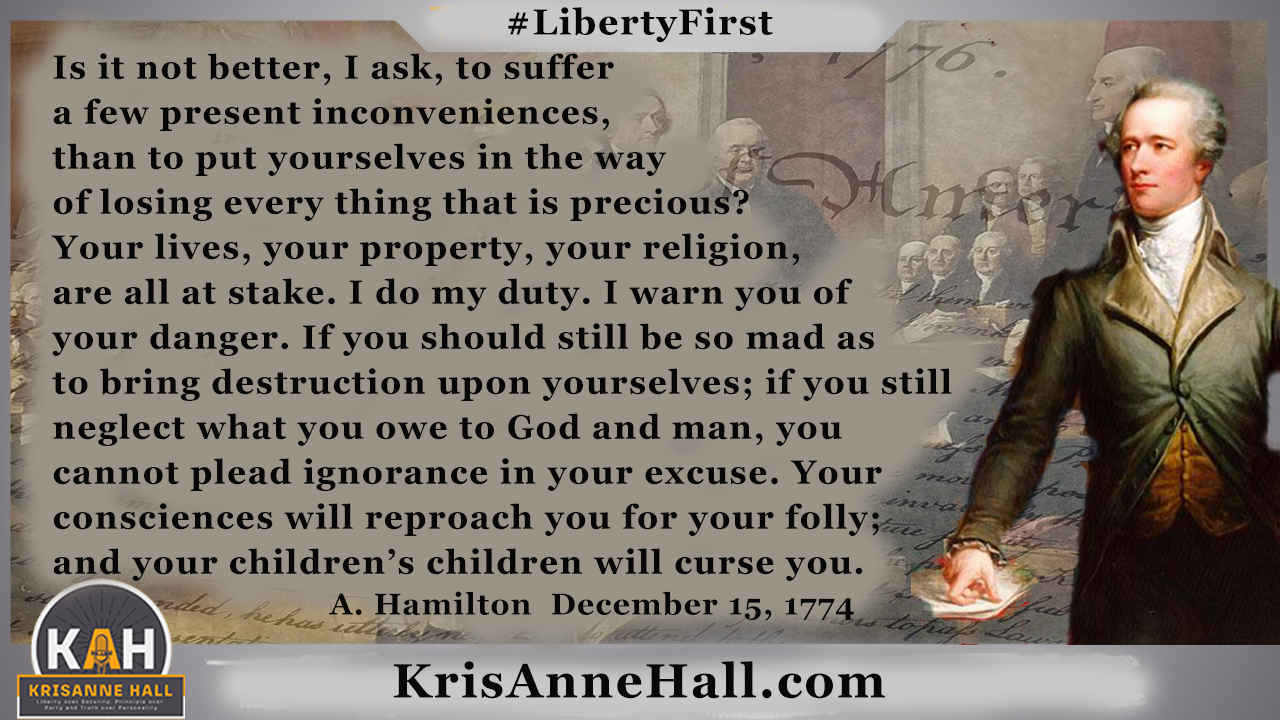HR 838 TAPS Act – You Are Being Lied To
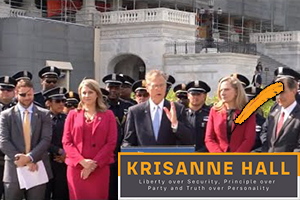
HR 838 TAPS Act – Constitutional Review
by KrisAnne Hall, JD
The text of the TAPS Act is not the solution to gun violence many members of Congress are professing it to be. The unlimited and arbitrary authority this Act bestows upon a bureaucracy of 24 people, combined with the language of double-speak and contradictions creating loopholes allowing completely unsupervised and unchecked authority is reminiscent of the Sedition Act of 1798.
SUMMARY:
- The TAPS act will create a brand new bureaucracy under the authority of the Department of Homeland Security. A non-elected bureaucrat is authorized by Congress to appoint 23 other non-elected bureaucrats to invent the authority for federal and State government agents to “identify individuals who are exhibiting patterns of concerning behavior” and then to “manage” those Americans.
- The sole purpose of this bureaucracy of 24 will be to create State and federal policing bodies ruling over the perceived behavior of the American people- KGB-style agencies not only monitoring the behavior of Americans, but also functioning as judge, jury, and executioner.
The Task Force:
This Act mandates the Secretary of Homeland Security to establish a Joint Behavioral Threat Assessment and Management Task Force: a 24 member bureaucracy consisting of one government employee (level GS-15 or above) and 23 people from non-governmental organizations of the Secretary’s choosing. Not a single member of this 24 person bureaucracy will be elected by the people, therefore the people will retain no control whatsoever over the actions or activity of this newly created bureaucracy that will possess, by Congressional consent, an enormous amount of arbitrary and unchecked power over the people (see §4(a)).
Purpose of the Task Force:
The sole purpose of this task force is “identifying individuals who are exhibiting patterns of concerning behavior” and create a power to control those people on a federal and local level (§3(2)) This Act contains no clear definition of “concerning behavior.” As a matter of fact, the Act relies upon the Task Force (24 non-elected bureaucrats) to first DEFINE “concerning behavior” and then empower the “monitors” tasked with “identifying individuals” that exhibit that behavior. According to (§3(2)(a)) no actual criminal act must take place to invoke the power this bureaucracy will create. A federal or local agent must only believe an individual is “interested” in committing their definition of “concerning behavior” to summon this new and undefined power to action. The DHS will then be “empowered” to implement these arbitrary rules with no acknowledgement to any of rights of the people. To take the legal-eeze off it, this is intended to create a registry of people who may commit crimes at some unspecified and unknown time in the future. This registry will then be used to begin a step-by-step usurpation of their individual rights, from the assumption of innocence and due process to the 1st and 2nd Amendments and more.
Power from the Task Force:
Once an federal or State agent has identified an American believed to be interested in some kind of concerning behavior, §3(2)(b) authorizes the Bureaucracy to empower these agents to investigate and gather information from multiple sources (sources remain undefined in this Act) on this individual American to find “articulable facts” supporting whether this person is truly exhibiting an “interest” in committing “concerning behavior.” The 4th Amendment requires government to obtain a warrant based upon probable cause (not articulable facts), supported by oath or affirmation, particularly describing the places to be searched and the persons or things to be seized. Under the 4th Amendment it is impossible for this Task Force to empower any government agent to do what Congress has authorized it to do. But the Act makes no mention of the 4th Amendment or the government’s requirement to respect & secure the Rights of the people.
According to §3(2)(c) of this Act, after the agent has compiled its “articulable facts” by circumventing the 4th Amendment’s requirements on government, the Bureaucracy will empower the government agent to “manage” the threat of “concerning behavior.” There is no definition within the Act for the word “manage.” However, the “Powers of the Task Force” are defined in §4(f) as follows:
“Any member of the Task Force may, if authorized by the Task Force, take any action which the Task Force is authorized to take by this section.”
While there are no guidelines created by Congress on how this Bureaucracy is supposed to define “manage” or “identify” the behavior of Americans, §2 of the Act establishes that the Task Force will create its own “ guidelines and best practices” in order to devise a “national standard” of action. Therefore, it seems indisputable through §2 and §4(f) that any member of the Task force can create any power for the agents to take any action it chooses as long the Task Force will establish the guidelines and practices for such action. The only limit of on the power of the government agent or agency as a whole, rests solely upon the whim of the individual bureaucrat and the bureaucracy to limit itself.
When a bureaucracy’s entire existence (funding & job security) relies upon the identification and subsequent management of Americans with “concerning behavior,” it is hard to imagine the bureaucrats will not find what they seek. The simple exercise of this newly invented authority will create a chilling effect on freedoms of speech, press, assembly, and redress. Many Americans will choose to remain silent to avoid any potential exercise of this power over their lives. Our Bill of Rights was ratified to prevent precisely this kind of totalitarian power over the people. When Americans withhold their voice out of fear of reprisal, in First Amendment law, we call this the “chilling effect” of the unconstitutional exercise of unauthorized government power.
Congressional Oversight:
Congress retains no real authority to check, balance, limit, modify, or control the exercise of power created by this bureaucracy, whatsoever. The only requirement for this new bureaucracy is to create the new behavioral police in America and after one year the Secretary (the GS-15 government employee) will submit a report to Congress telling Congress what they have been doing for the past year. The Act then requires DHS to report to Congress once a year every subsequent year on how the guidelines are working, not as a check and balance.
A deceived member of Congress may attempt to assert that the only authority of the Bureaucracy is to make “suggestions to Congress” as to what the proper course of action should be. However, that assertion can be seen as pure error by reading §3(2)(c) of this Act.
A deceived member of Congress may believe that this federal bureaucracy will have no power over the State and local police powers. However §8 of this Act establishes that federal grant money will be given to local jurisdictions which will undeniably establish the power for this Bureaucracy to control our local and State authorities once they accept that money. (Surely the American people recognize this slight of hand by now!)
A deceived Supreme Court, upon legal challenge, will likely fail to recognize this Act to be vague and full of self-defining authority for a non-elected bureaucracy. SCOTUS has long held great deference to federal agencies and their agents to define their own authority and procedures when Congress leaves holes in the laws.
Constitutional Authority:
The Constitution delegates no authority to Congress to fund, recommend, or create a behavioral police for the people. The writing of this Act and the Act’s website proves that every co-sponsor of this Bill knows this as fact! First, the Act makes no mention of due process, the rights of the people, nor any reliance upon or limit established by the Constitution of the United States. Secondly, if you go to the Bill’s website and click on the hyperlink **“Constitutional Authority Statement” the link takes you back to a copy of the Bill text, with no statement of authority whatsoever. Underpinning this act is NOT the Constitution but fear of guns on the left and fear of terrorists on the right.
Conclusion:
So, with the passage of this Act, Congress will create a Bureaucracy who will be empowered to create its own guidelines and procedures on how it will operate to define, identify, and enforce government control upon its self-defined “concerning behavior” of individuals in America: Complete autonomous, arbitrary, self-defined authority resting in the hands of bureaucrats elected by no one, controlled by no one. This Act, on its face, violates the 4th, 5th, 6th, and 8th Amendments. But as in every arbitrary law, the whole truth of its offense to the rights of the people cannot be fully known until the law is put into action. If this Act is used as some members of Congress profess, it is highly likely that execution of this Act will violate large swaths of the Constitution — including 1st, 2nd, 4th, 5th, 6th, 7th, 8th, 9th, and 10th Amendments. Constitution and rights of the people be damned, the bureaucrats will have their power under the illusion of keeping people safe.
Members of Congress are championing this Bill as the be all, end all solution to gun violence in America, yet the Bill does not even once mention the words “gun” or “ammunition.” It should be clear now that the TAPS Act is not about gun control at all, it is about People Control. It will target any American who voices, types, or indicates a thought toward questioning government policy, people, or power. (See the FBI Memo defining and identifying the “new” standard for domestic terrorist.)
How any politician who professes a knowledge of the Constitution or professes a love for America, her people, and their rights could EVER back this insidious piece of legislation is completely beyond my comprehension. And as Patrick Henry said in 1788, Guard with jealous attention the public liberty. Suspect everyone who approaches that jewel. It’s time for the American people to hold these pretend patriots suspect and tell them to change their vote or change their vocation.
If any person, including members of Congress would like to discuss this with me, my door is open. My website: KrisAnneHall.com
**NOTE: Since the publication of this article, the Act website has been updated to include a reference to the “commerce clause” as authority for this Act. If you want to understand why this is not a valid use of authority for this Act, please attend this course at LibertyFirstSociety.com:
General Welfare & Commerce Clauses: https://www.krisannehall.com/index.php/preview-courses/254-general-welfare-and-commerce-clauses

